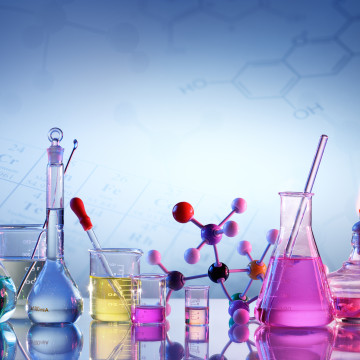

Year 12 Chemistry Units 3 and 4
Overview
In Unit 3 you will analyse and compare different fuels as energy sources for society, with reference to the energy transformations and chemical reactions involved, energy efficiencies, environmental impacts and potential applications. You explore food in the context of supplying energy in living systems. The purpose, design and operating principles of galvanic cells, fuel cells, rechargeable cells and electrolytic cells are considered when evaluating their suitability for supplying society’s needs for energy and materials. You evaluate chemical processes with reference to factors that influence their reaction rates and extent. You will investigate how the rate of a reaction can be controlled so that it occurs at the optimum rate while avoiding unwanted side reactions and by-products. You also take part in practical investigations involving thermochemistry, redox reactions, electrochemical cells, reaction rates and equilibrium systems. These happen virtually and you will also be given the opportunity to take part in these onsite.
In Unit 4, you will investigate the structures and reactions of carbon-based organic compounds, including considering how green chemistry principles are applied in the production of synthetic organic compounds. You will study the metabolism of food and the action of medicines in the body. You explore how laboratory analysis and various instrumentation techniques can be applied to analyse organic compounds in order to identify them and to ensure product purity.
Through the year, you will complete a student-designed scientific investigation related to the production of energy or chemicals. This includes laboratory work, either virtually or in person.
Who is it for?
Chemistry is an ideal subject if you like science and have fairly good maths skills. There are interesting experiments to complete, where you apply what you have learnt and explain the things you observe.
Your maths skills help you to work out how much of a compound is produced, and compare it with what the amount you predicted. Chemistry also provides background for studies in health sciences, where chemical processes and calculations are a key focus.
What do you do?
- complete five school-based assessment tasks including the completion of a student-designed scientific investigation related to the production of energy or chemicals
- conduct investigations or practical activities that include collecting, processing, recording and analysing qualitative and quantitative data; draw conclusions consistent with the question under investigation and the information collected; evaluate procedures and reliability of data
- attend online lessons, revision seminars and laboratory sessions
- complete logbook activities, weekly online quiz modules and hand-written worksheets.
What skills do you need?
Chemistry is one of the studies in Science. As such, there is an assumed prior knowledge of Units 1 and 2 Chemistry and Years 7-10 Science.
It is also useful to have a sound understanding of basic mathematics skills, especially rearranging equations, scientific notation and basic unit conversions, for example, grams to kilograms.
What skills do you develop?
By taking Chemistry you develop some very useful skills that can be applied outside of the subject discipline, including:
- problem solving
- numeracy
- practical skills
- developing a broad scientific background.
Requirements
Internet is needed to participate in this course. All work will be completed and submitted online weekly.
Access to a printer OR a soft pen/stylus (for a computer/tablet, used to handwrite electronically) for completing handwritten work.
A document scanning app to scan and upload and hard copy documents.
The practical investigations in this course are compulsory. School-based students are expected to be given access to the laboratory at their home school and will need to be supervised while conducting experiments. This access and supervision will be required for approximately 4x half days in total between terms 1-3. If you are unable to use a laboratory at your home school (or your home school is the VSV), you can attend the VSV laboratory in Thornbury. Laboratory days at VSV will require attendance for approximately 4 days in total between terms 1-3.
A scientific calculator to perform calculations. CAS/Graphic calculators are not permitted.
Things to think about
Chemistry is a subject that requires a high level of dedication. Because of the nature of the work involved in Chemistry, much of the work we ask you to complete is handwritten. This is because we find that doing calculations and drawing structural formulae of molecules is not only much easier by hand, but also an essential skill.
We offer some in person laboratory experiences at VSV through the year. While these are not compulsory, we have found that students who do attend in person not only understand the experiment better, but can also more easily apply the concepts they learnt to other situations. Part of Chemistry is learning about the risks and inherent errors in experimental design and there is no better way to learn about this that experiencing it in person. If you are attending the laboratory sessions in person, you will need to arrange your own transport.
Things you can do now
Have a look at the Fuse School Chemistry playlist on YouTube. There are a lot of resources here. Some might be new information to you, some will be revision:
- review your understanding of the Periodic Table
- revise your understanding of mass and molar mass
- refresh your knowledge of ionic equations
- have a go at the balancing chemical equations game.
Things to have a look at
Units 1 and 2 Chemistry revision
This is a good overall refresher course of Year 11 Chemistry